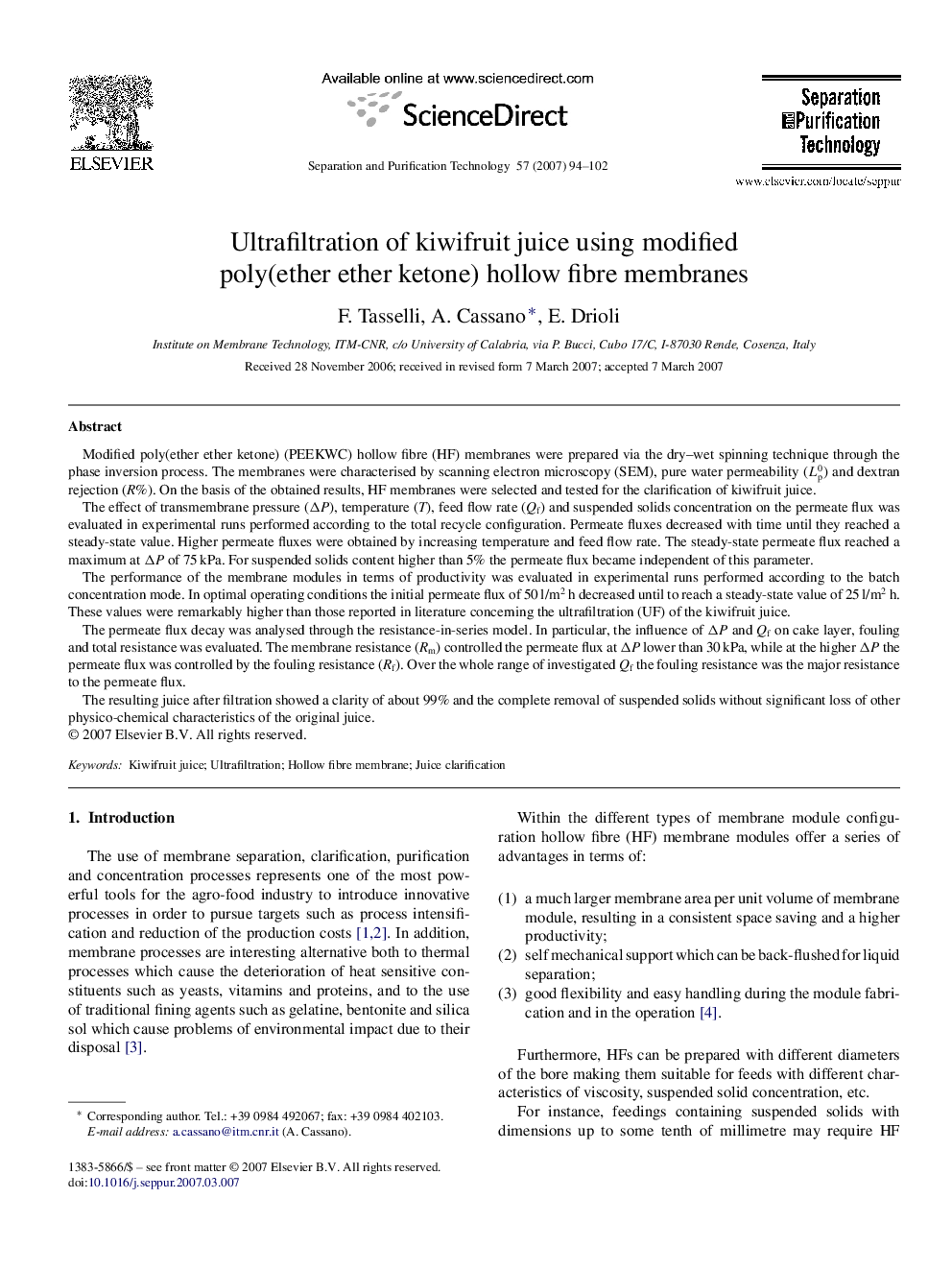| Article ID | Journal | Published Year | Pages | File Type |
|---|---|---|---|---|
| 643907 | Separation and Purification Technology | 2007 | 9 Pages |
Modified poly(ether ether ketone) (PEEKWC) hollow fibre (HF) membranes were prepared via the dry–wet spinning technique through the phase inversion process. The membranes were characterised by scanning electron microscopy (SEM), pure water permeability (Lp0) and dextran rejection (R%). On the basis of the obtained results, HF membranes were selected and tested for the clarification of kiwifruit juice.The effect of transmembrane pressure (ΔP), temperature (T), feed flow rate (Qf) and suspended solids concentration on the permeate flux was evaluated in experimental runs performed according to the total recycle configuration. Permeate fluxes decreased with time until they reached a steady-state value. Higher permeate fluxes were obtained by increasing temperature and feed flow rate. The steady-state permeate flux reached a maximum at ΔP of 75 kPa. For suspended solids content higher than 5% the permeate flux became independent of this parameter.The performance of the membrane modules in terms of productivity was evaluated in experimental runs performed according to the batch concentration mode. In optimal operating conditions the initial permeate flux of 50 l/m2 h decreased until to reach a steady-state value of 25 l/m2 h. These values were remarkably higher than those reported in literature concerning the ultrafiltration (UF) of the kiwifruit juice.The permeate flux decay was analysed through the resistance-in-series model. In particular, the influence of ΔP and Qf on cake layer, fouling and total resistance was evaluated. The membrane resistance (Rm) controlled the permeate flux at ΔP lower than 30 kPa, while at the higher ΔP the permeate flux was controlled by the fouling resistance (Rf). Over the whole range of investigated Qf the fouling resistance was the major resistance to the permeate flux.The resulting juice after filtration showed a clarity of about 99% and the complete removal of suspended solids without significant loss of other physico-chemical characteristics of the original juice.
